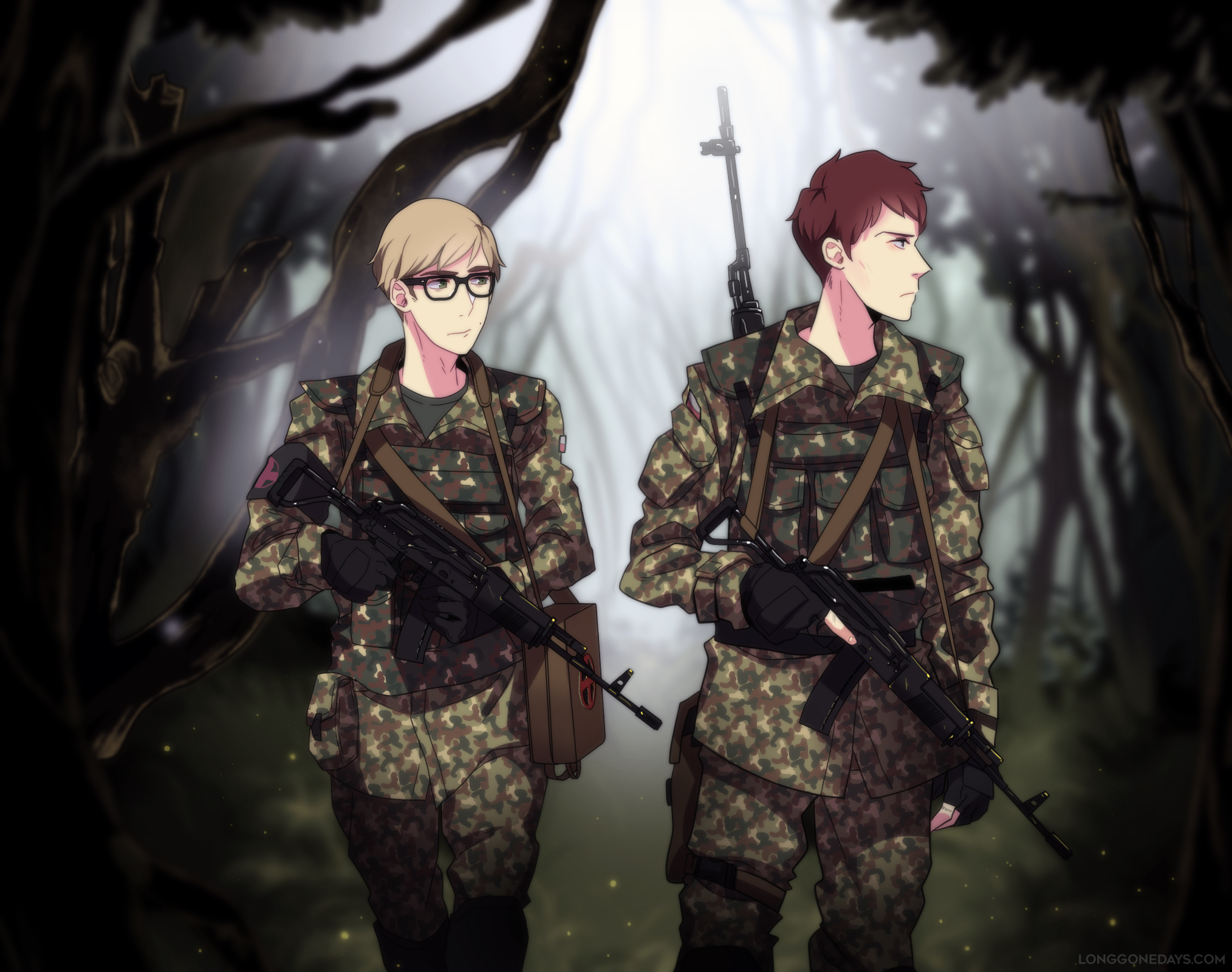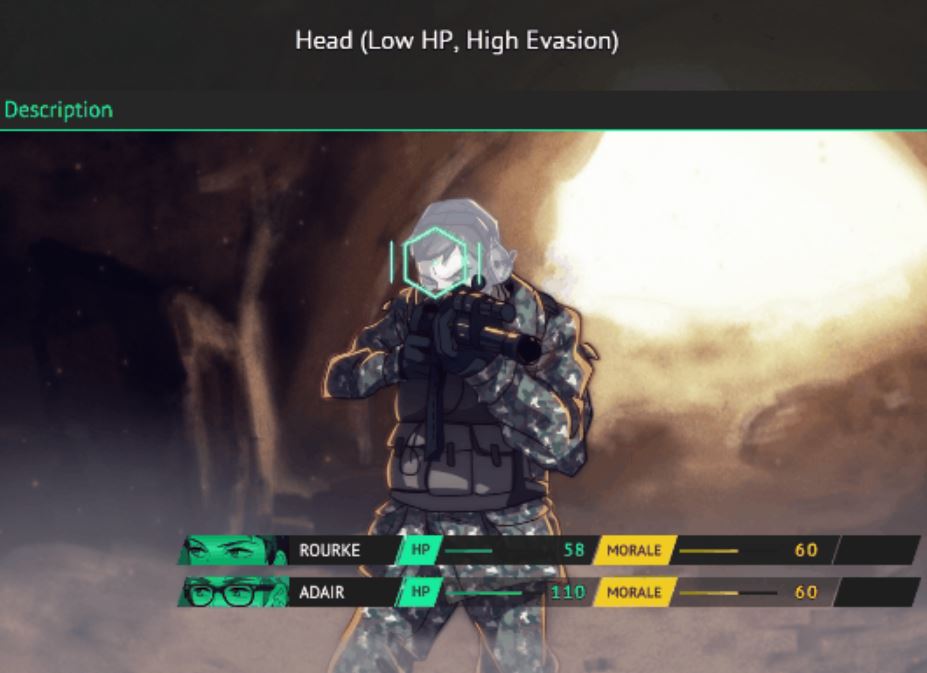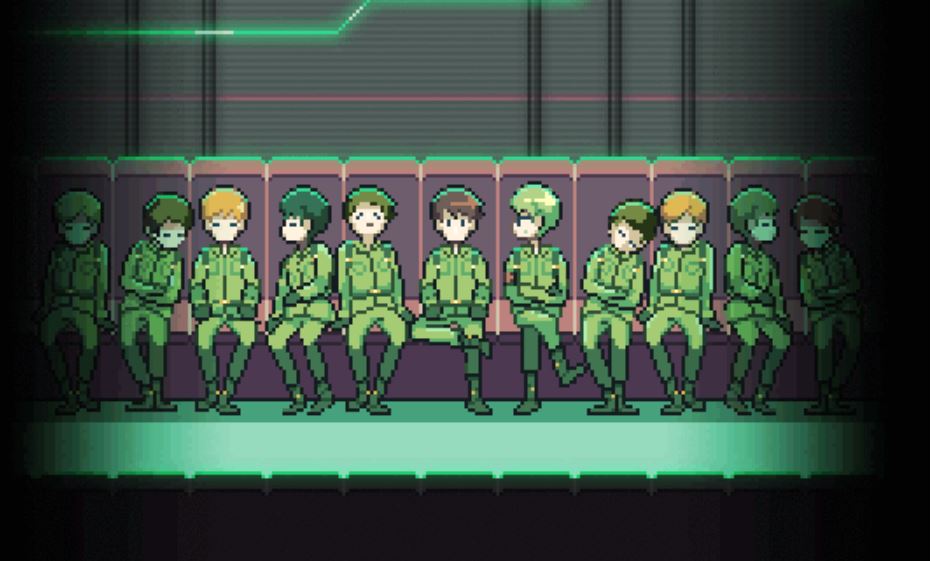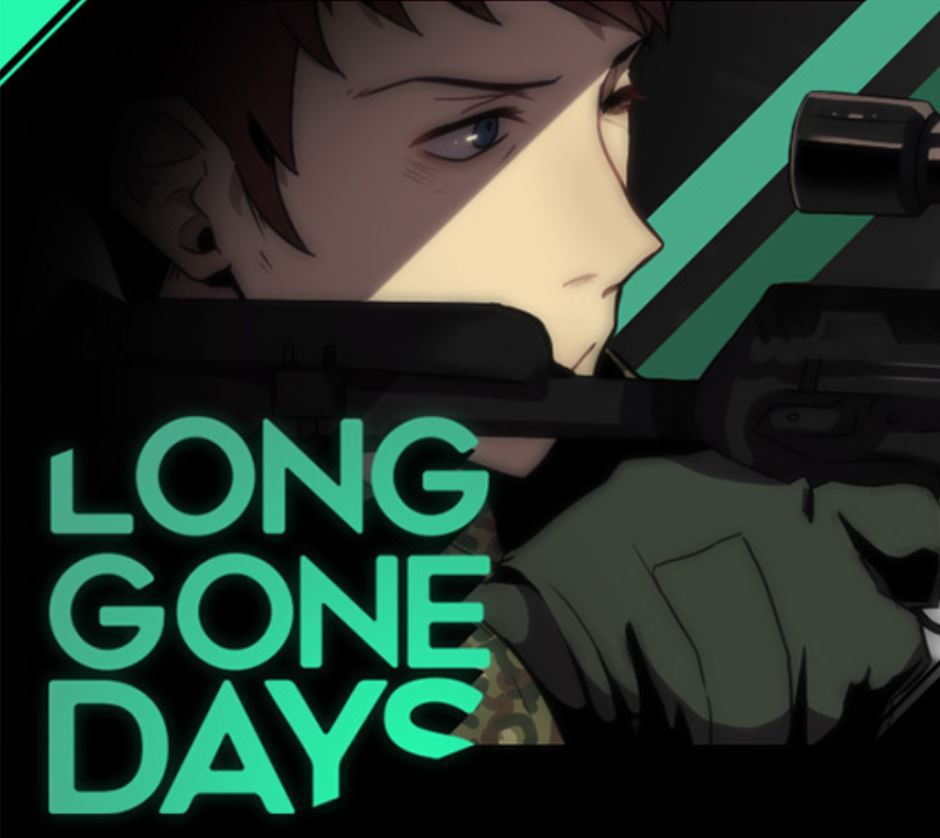War! HUH! What is it good for? Anti-war media, for a start. Such as Long Gone Days, by Camila Gormaz and Pablo Videla. It attempts to look at the “modern day military” using an underground nation (literally in this case) of mercenaries. It’s safe to say Metal Gear Solid V was probably an inspiration.
https://www.youtube.com/watch?v=s5i4ZbaCuVw
I got a chance to play the demo over a month ago. Trust me, I’m kicking myself for not looking at it sooner.
As my colleague and longtime toothpick enthusiast Megan Myrick points out, Long Gone Days incorporates a melting pot of gameplay mechanics. Part visual novel, part RPG, part sniping simulator, there’s no lack of toys in this particular woodshed. Combine that with the Japanese inspired art in cutscenes and pixelated art in-game, and you have a great looking game as well.
It all comes together to form one of the most polished pre-alpha demos for a crowdfunding campaign I’ve seen. It’s maybe even better than Indivisible in terms of content.
 There’s one pressing question on my mind though. Much like That Day We Left, Long Gone Days is inherently political. It’s about a child raised as a soldier in a mercenary army. He deserts his unit when he learns that mercenary army is secretly planning to start a World War in the hopes of preventing it. The political themes are present, and just as I said with That Day We Left, the developers shouldn’t be shy about it.
There’s one pressing question on my mind though. Much like That Day We Left, Long Gone Days is inherently political. It’s about a child raised as a soldier in a mercenary army. He deserts his unit when he learns that mercenary army is secretly planning to start a World War in the hopes of preventing it. The political themes are present, and just as I said with That Day We Left, the developers shouldn’t be shy about it.
There’s been a long history of anti-war books and films to the point where I don’t even know where I’d begin to discuss them. Good thing I talk about video games for a living then, huh? Video games don’t have quite as rich a history as books or films, obviously. But the percentage of seemingly pro-war games outweigh anti-war ones by a mile.
We all have to live with the embarrassment of giving America’s Army a free pass. For those that don’t know, America’s Army was a war game developed by the United States military and given out – for free – to kids and teenagers in schools.
 When I say “pro-war,” I’m not necessarily talking about games that state that war is good. What I mean is more along the lines of games that present war as fun. There are many conversations that can stem from this. Why does traditional video game design dictate games have to be “fun?” Why are game designers unable to come up with any ideas for gameplay other than combat? How do propaganda games for nations, companies, or ideologues fly under the radar? But we’re not going to talk about any of that here.
When I say “pro-war,” I’m not necessarily talking about games that state that war is good. What I mean is more along the lines of games that present war as fun. There are many conversations that can stem from this. Why does traditional video game design dictate games have to be “fun?” Why are game designers unable to come up with any ideas for gameplay other than combat? How do propaganda games for nations, companies, or ideologues fly under the radar? But we’re not going to talk about any of that here.
Long Gone Days is taking a tentative step, consciously or maybe inadvertently, into a field where video games don’t often find success. Anti-war media in any form needs to say something more substantial than “war is hell.” I’ve never been in a war, I’m not a soldier, and barring a disaster this November, I’ll never experience combat firsthand. But you don’t need to be a rocket surgeon to know that watching your friends get gunned down or having an IED blow up your Humvee isn’t a fun time. So why would we need to play a video game just hear that message?
 The obvious example of an anti-war game is usually Spec Ops: The Line, and it’s a great one. On the surface it’s a generic military shooter. When you pull back the layers though, you realize it uses the trappings of generic shooters to deliver a powerful anti-war message. It’s also a condemnation of American militarism, details the devastating effects of post-traumatic stress disorder, and the meaningless of video game moral choices. It’s a great game that conveys these messages without having to beat you over the head. Not too much, anyway.
The obvious example of an anti-war game is usually Spec Ops: The Line, and it’s a great one. On the surface it’s a generic military shooter. When you pull back the layers though, you realize it uses the trappings of generic shooters to deliver a powerful anti-war message. It’s also a condemnation of American militarism, details the devastating effects of post-traumatic stress disorder, and the meaningless of video game moral choices. It’s a great game that conveys these messages without having to beat you over the head. Not too much, anyway.
Another great example is… uh… the one with the… the guy… um… no… I guess some of the later Metal Gear games? They were more anti-nuclear weapons than anti-war though.
There aren’t much in the way of truly transformative anti-war video games. The best we get are your Call of Dutys or early Medal of Honor games which never go beyond “war sucks.” These aren’t properties we remember for striking messages or powerful subtext. We remember them for their multiplayer campaigns or no scope 360 noob pwning.
We can never seem to let one of these things go without asking ourselves whether they’re subtly promoting war. Remember when the Medal of Honor Warfighter website linked to a gun retailer? I don’t remember hearing Fortunate Son playing in the background.
 Video games can be so much more than just toys, or deliver baseline common sense messages. There’s a reason video games that tell us to brush our teeth or eat at least three meals a day don’t exist. Why should we settle for anti-war video games that can only think to say something just as obvious?
Video games can be so much more than just toys, or deliver baseline common sense messages. There’s a reason video games that tell us to brush our teeth or eat at least three meals a day don’t exist. Why should we settle for anti-war video games that can only think to say something just as obvious?
From my time playing Long Gone Days, I couldn’t get a read on the game’s messaging, but I enjoyed myself. The basic components such as writing, music, graphics, and gameplay were all sublime. I hope when it releases we get to do more than examine its individual parts like a toaster.
By the way, have you taken a shower lately? You can get a bit stinky and dirty if you don’t.




[…] place and another time. In fact, I have to a lesser degree over at Cliqist with my articles about Long Gone Days. We’re here to talk about history though, remember? So let’s instead talk about how you could […]